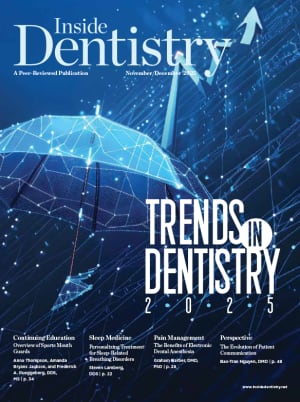The American Dental Hygienists’ Association (ADHA) has released a new white paper recommending expanded practice authority and autonomy for dental hygienists in response to what it describes as a national oral health access crisis.
The paper, titled Missed Potential: How Expanding Dental Hygienists’ Roles Can Bridge America’s Oral Health Gaps, documents significant gaps in oral healthcare access and outlines how policy changes could improve preventive care delivery, particularly in underserved communities.
The white paper reveals that 40 percent of Americans who intend to receive dental care do not follow through due to barriers in access. The report identifies that 24.7 million people live in areas with dental care shortages, and 1.7 million cannot access care within a 30-minute drive. In addition, periodontal disease accounts for $154.06 billion annually in lost productivity.
“This white paper is another example of our profession offering evidence-based support for critical policy changes and development,” said Lancette VanGuilder, ADHA president. “Through ADHA’s strong advocacy work and growing federal presence, we’re making dental hygienists’ voices heard as vital healthcare providers and demonstrating that our profession is essential to solving America’s oral health crisis. Removing outdated practice barriers isn’t just good policy — it’s critical to healthcare infrastructure.”
The paper draws comparisons between states with varying levels of dental hygienist autonomy. Colorado, which permits full autonomy for dental hygienists, reports that only 10 percent of low-income adults rate their oral health as poor. In contrast, Mississippi, where dental hygienist practice is more restricted, reports a rate of 27 percent.
“The evidence shows that expanded dental hygienist autonomy dramatically improves access to preventive care, especially for underserved populations,” said Dr. JoAnn Gurenlian, ADHA’s director of education, research and advocacy. “This research provides policymakers with data showing that empowering hygienists to provide the preventive care they were educated to perform prevents costly emergency interventions and improves population health outcomes — it’s a public health imperative.”
To address these disparities, the ADHA outlines four recommended policy changes:
- Allow dental hygienists to practice to the highest national level of their education and licensure.
- Remove practice setting restrictions that limit where dental hygienists can provide care.
- Support the use of mobile, portable, and tele-dentistry models to expand access.
- Provide direct reimbursement for dental hygienist services.
The white paper was authored by Shelley Hammond, MMC, and is available for download at adha.org/whitepapers.
